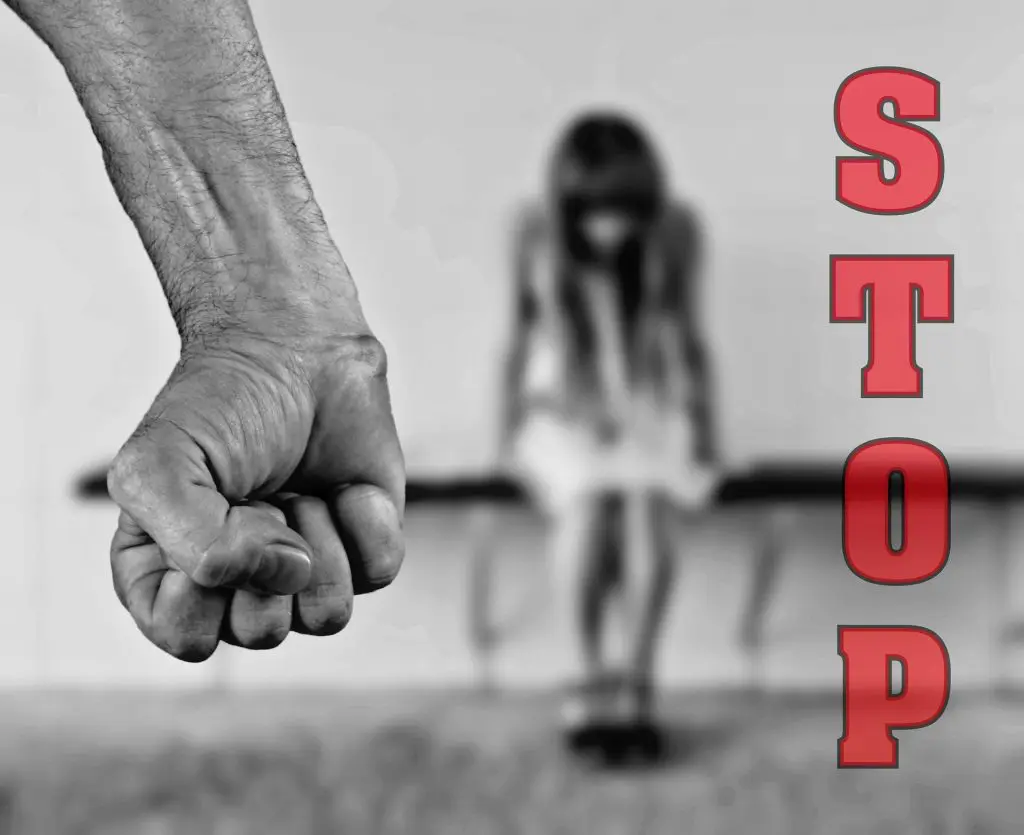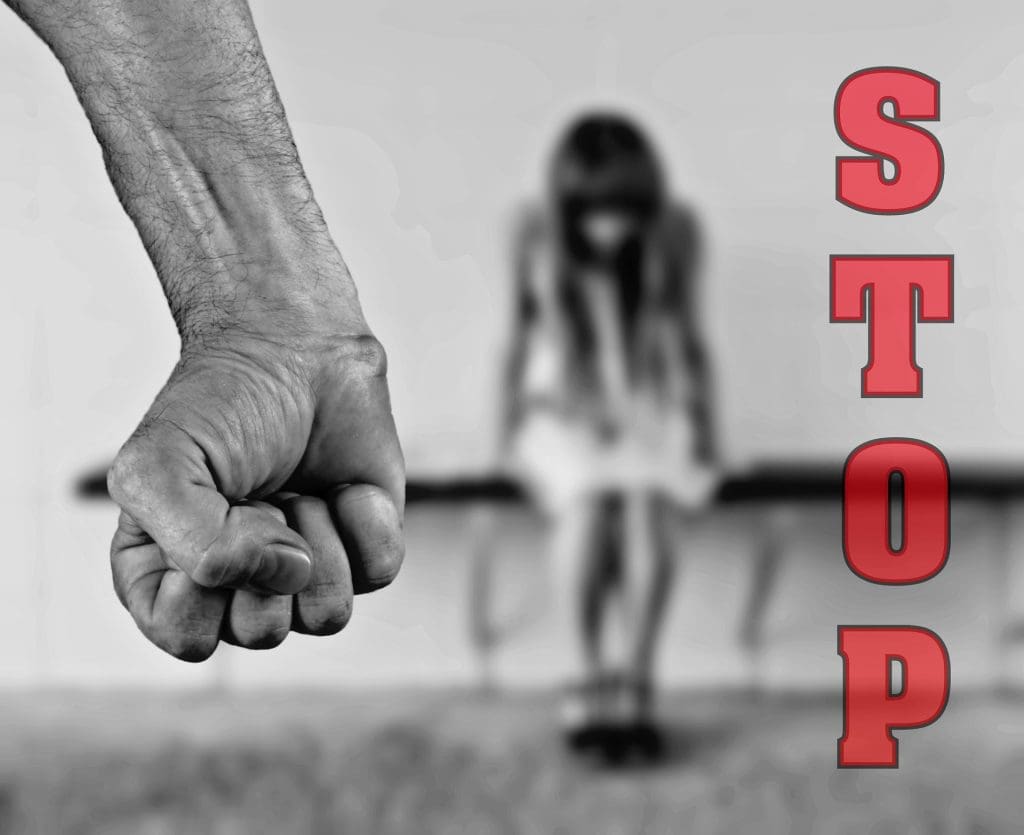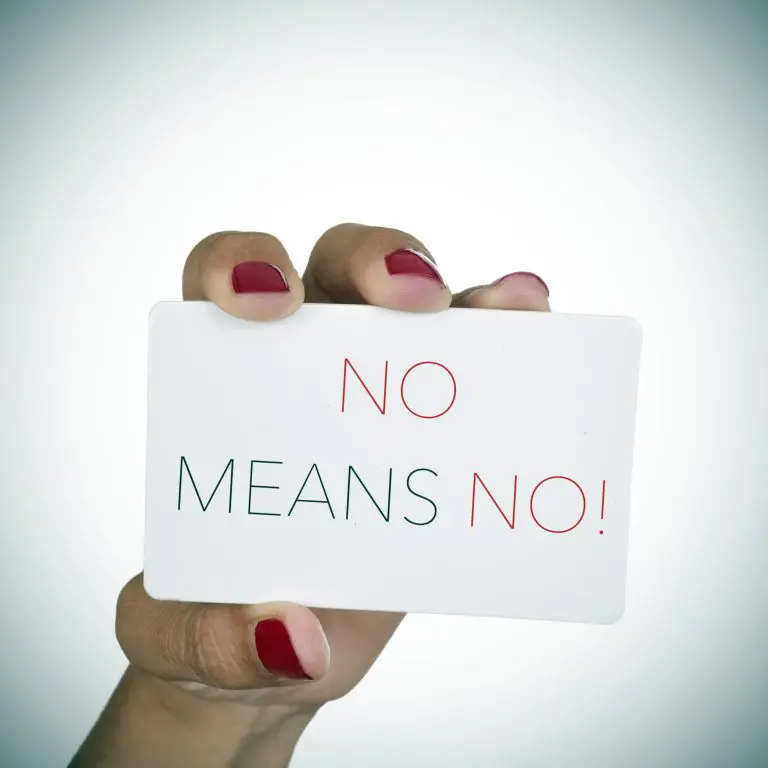By Nikki Katz – Contributing Author to Crime, Justice and America magazine. Originally published in 2002 and reposted with permission from Crime, Justice and America magazine
Your friends and family think you live the perfect life. You share a home in an affluent neighborhood with your husband and three children. You drive a new minivan complete with the latest in-seat DVD system, you wear stylish clothing, and you get a pedicure every two weeks. You go on annual family vacations to fun and exotic places, and you often welcome neighbors to your house to enjoy catered parties. So when you announce to everyone that you have filed for a divorce from your husband of 15 years, they are stunned. When they ask “why?” you tell them that he has been abusing you. The emotions on their faces range from surprise to disbelief. Your sister looks you over and says that she doesn’t see a bruise on your body. She’s right. Your husband has never hit you, you’ve never been to the hospital outside of birthing your children, and you’ve never contacted the police.

-
Attorneys.Media
-
@attorneys_media
-
linkedin
-
Digg
-
Newsvine
-
StumbleUpon
What they can’t see and never suspected is an invisible form of domestic violence – one that broke your spirit and left you depressed and downtrodden. You are the victim of emotional domestic violence. Your husband is extremely manipulative. A year ago you wanted to go back to school to finish your degree but your husband refused to pay for the tuition. He controls all of your finances and gives you a small allowance only if you obey his specific wishes, exactly when he wants them fulfilled. He criticizes the way you fold his shirts, the way you dry the dishes, the meals that you make, and the way you wear your make-up. He embarrasses you in public, calling you names and humiliating you in front of your friends. And when you approach him, in private, about your situation, he threatens to take your children if you leave him.
You have finally obtained the courage to get out of the situation, but the people around you still don’t understand. Although your friends don’t particularly like your husband or the way he speaks to you, they never would call him a perpetrator of domestic violence.
This is the problem. Many people view domestic violence only in terms of physical abuse. They expect to see black eyes, scars from burns, or multiple hospital visits. But domestic violence isn’t always about physical pain. There’s a quiet domestic violence in the form of emotional abuse that affects many women. And it often leads to physical abuse if they don’t get out of the situation quickly enough.
So What Is Emotional Domestic Violence?
“Emotional abuse can be defined as any nonphysical behavior that is designed to control, intimidate, subjugate, demean, punish, or isolate another person through the use of degradation, humiliation, or fear,” writes Beverly Engel, author of The Emotionally Abusive Relationship : How to Stop Being Abused and How to Stop Abusing. When a spouse, date, boyfriend, partner, or family member uses emotional abuse, threats, or stalking to control you, they are committing emotional domestic violence – and that’s a crime.


-
Attorneys.Media
-
@attorneys_media
-
linkedin
-
Digg
-
Newsvine
-
StumbleUpon
Emotional domestic violence is much more common than you might think. It happens to people across all social and racial classes, and it doesn’t always happen to the “other woman.” Your next-door neighbor, the woman who styles your hair, or your boss may have suffered emotionally at the hands of her boyfriend or spouse. Or you might be a victim of this silent domestic violence yourself.
Emotional domestic violence is not just something that men inflict on women. Women often attempt to control their partner through emotional abuse and domestic violence as well. It is estimated that 40-50% of domestic violence sufferers are men, but it is not often recognized.
How Do I Know If I’m A Victim?
There are many non-physical or nonpainful signals that your partner may exhibit. Just because they don’t cause you pain, that doesn’t mean it is not domestic violence. If your partner uses any of the following techniques, you should talk to a counselor and get out of the situation. You need to accept these as emotional abuse and warning signs to a future that could involve physical domestic violence.
Examples of Emotional Domestic Violence Abuse:
Controlling behavior and/or finances: Your partner controls your coming and goings, or uses finances to manipulate what you can and cannot do.
Isolation: He cuts you off from your friends, family, and colleagues. Intimidation and threats: He tells you that he will hurt you or your children. He may even threaten to leave you or says that he’ll force you to leave. Criticizing and verbal abuse: Your partner says that he hates you or he humiliates you in public.
Ignoring: He ignores your feelings and emotions and often gets mad if you disagree with him.
Other Things To Watch Out For:
Jealousy: He is jealous of any time you spend away from him and calls to check up on you when you’re out. He may even falsely accuse you of having affairs.
Sudden mood swings: His behavior is unpredictable and you have to be careful what you say around him.


-
Attorneys.Media
-
@attorneys_media
-
linkedin
-
Digg
-
Newsvine
-
StumbleUpon
Hypersensitivity: He is easily upset over anything you ask him and is often annoyed with even simple tasks.
Previous violent history: Your partner has been violent with others in the past.
Throwing things: He breaks or throws objects when angry.
Why Does He Do It?
Emotional domestic violence perpetrators conduct their behavior as a method to control their partner and brainwash their partner into believing that she deserves to be treated this way. In using emotional abuse he attempts to attack his partner’s spirit and sense of self. Verbal abuse controls the mind and thus the relationship. “Covert verbal abuse is subversive because of its indirect quality. It is a covert attack or coercion. This kind of abuse has been described as ‘crazymaking’,” according to Patricia Evans, author of The Verbally Abusive Relationship: How to Recognize it and How to Respond. The abuser makes his victim crazy in his attempt to instill his behavior and attitudes upon her by training her how to behave.
A domestic violence abuser will often appear perfect to the outside world and treat his partner with respect and positive attention in public. But when they return home, he becomes cruel and manipulative. He is usually possessive and jealous. He views the victim as an object that he can control. He has low self-esteem and uses abuse to create dependency by his victim.
What Will Happen If I Don’t Get Out?
A sufferer of emotional abuse can become insecure, withdrawn, and resigned. She often becomes tired, sick, depressed, confused, and forgetful. She usually has poor self-esteem and starts to feel worthless, unlovable, and completely incompetent. She begins to internalize the emotional abuse and believes that it is valid and justified. As the abuse continues, she sinks further into despair and it becomes more difficult to address the situation and leave. She will then often turn to alcohol, drugs, eating disorders, or even suicide to ease her pain.


-
Attorneys.Media
-
@attorneys_media
-
linkedin
-
Digg
-
Newsvine
-
StumbleUpon
How Do I Get Out?
“Generally the responsibility for recognizing verbal abuse rests with the partner of the abuser, because the abuser is not motivated to change,” says Evans. If you’re suffering from emotional abuse you need to get out of the situation before any real psychological trauma sets in or before your partner turns violent on you or your children. As soon as you start feeling bad about yourself and become afraid to do or say something to your partner for fear of his response – it’s time to take a stand and leave him. This will be a difficult, but necessary, process.
The first step is to seek out professional help from an outreach organization, counselor, or psychologist, as well as build a network of support from family and friends, before you make any attempt to leave. Before confronting your partner, you must first have a plan of action. When you escape the situation by leaving, or asking for a divorce, your partner may become angry and turn to physical violence or further emotional manipulation to keep you in the relationship. He may threaten you or your children. He may attack you or prevent you from leaving the house. In knowing that he might resort to this – make sure that you are prepared to leave the area immediately. Have money, any of your cherished belongings, and copies of important documents, packed and ready to go. Talk to your friends or family beforehand so that you have a place to go if needed. If they are not available, find a domestic violence shelter to assist you.
When it comes time to address your partner, take your safety very seriously. Make sure that you are in a place that you can leave immediately. If you are at home – try to keep your back to an open door if you need to escape. You may even want to discuss it in public so that others are around. Whatever your decision, be proactive and plan ahead. Even if your partner has never resorted to physical violence in the past, he may when he is confronted with the reality of you leaving.
Help, I Think My Friend Might Be Suffering:
There might come a time where you sense that your friend or colleague is the victim of domestic violence. The decision whether or not to get involved can be a tough one, but an easy way to initiate a conversation and discover if there is merit to your concern is to ask some questions.
- What happens in your house when an argument happens?
- Is there anything that goes on in your house that makes you afraid?
- Has your husband ever threatened you or your children?
- Does your husband criticize you often?
- Does your husband act jealous or refuse to let you go out with family or friends?
- Does your husband abuse alcohol or drugs? If so, what happens?
- Has your husband hurt you in any way?
- Does your husband throw or break anything when he’s mad?
- Does your husband treat you well?
- Does your husband accuse you of things that you haven’t done?
If you find it difficult to ask these questions, try talking about a personal situation to break the ice. For instance you might say “My husband and I had an argument the other night and it got pretty heated,” and then follow that up with a question.
Encourage your friend to talk. She may become angry, or defend her partner, but just reassure her that you care about her and are worried. She may be unaware that emotional abuse is a form of domestic violence. Emotional abuse often results in the victim feeling that she is deserving of the attacks, so you must make it clear that she is indeed a victim and doesn’t need to accept it.
When she does open up to you, make sure to listen, believe, and confirm what she is saying. Validate her feelings and encourage her to do what’s right. Urge her to speak to a counselor and to contact the police if she has undergone any violent attacks. Stand by her if she decides to take action, and help her in constructing a safety plan. Offer to be a point of contact or a place to which she can run. You can also assist her in getting some professional help or provide phone numbers for domestic violence hotlines and shelters.
It’s unnecessary for anybody to suffer from emotional abuse and domestic violence. Take a stand and get yourself, and your friends, out of these situations today.

















